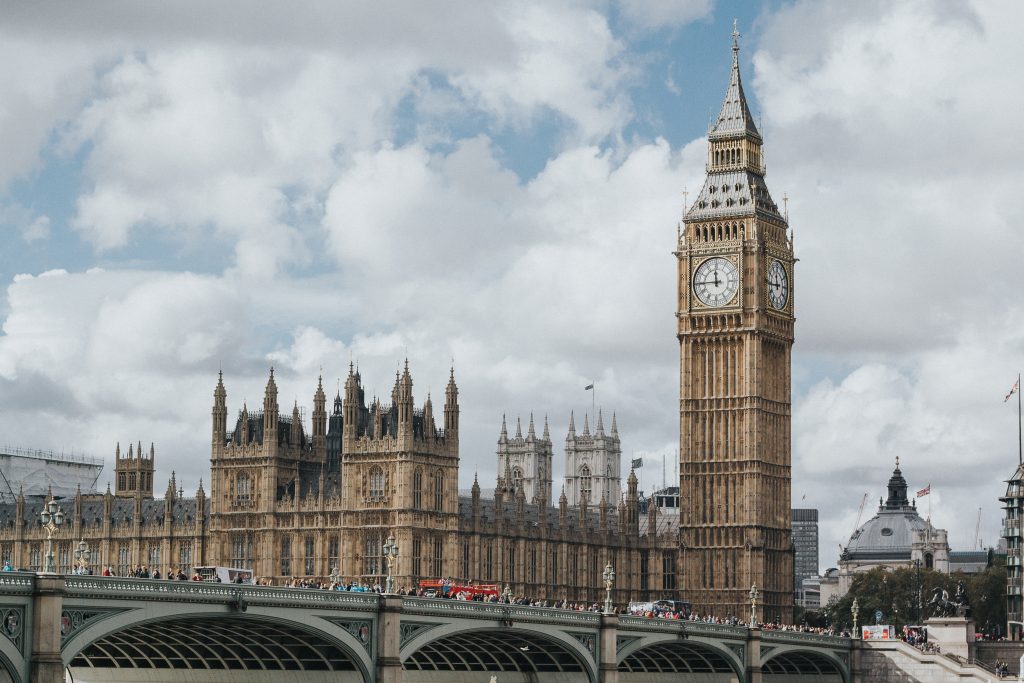It is easy to take the welfare state for granted. For those of us born after 1949, we’ve always known Britain as having free healthcare for all, free education up to secondary school, and a social security net to fall back on if we become unable to work. It is difficult to comprehend a time when none of this existed.
Yet, there are constant signs in the news that the welfare state is, at the very least, shrinking. From the budgetary burden and privatisation of the NHS, to the scrapping of social security benefits and the introduction of benefits caps and freezes, the welfare state as we know it appears to be at risk.
Now seems like a pertinent time to revisit why the welfare state was introduced in the first place and why it is important today, particularly in relation to human rights.
What is the Welfare State and where did it come from?

Image credit: Marcin Nowack / Unsplash
A welfare state is a form of governance in which the state actively plays a role in the promotion and protection of people’s livelihood and well-being through the provision of certain services, benefits and a guarantee of minimum standards, including adequate income.
The welfare state as we know it today is largely a consequence of the 1942 Beveridge Report, which was written during a period of austerity, growing inequality and widespread poverty. In the report, a series of policies were proposed to tackle “the five giants” (Want, Disease, Ignorance, Squalor, and Idleness) and provide aid to citizens in need, “from cradle-to-grave”.
Many of the policies in the Beveridge Report were adopted by the newly elected Labour Government from 1945 to 1951. These policies were funded by a weekly National Insurance contribution, which was higher for those with higher incomes. It led to the creation of the National Health Service in 1946, a comprehensive social security net for all citizens in the UK (regardless of whether they had an income and paid National Insurance) and access to legal redress through legal aid, to name only a few.
The welfare state is justified by principles of fairness and equality. It aims to overcome inequality through the redistribution of wealth and to tackle poverty by protecting the vulnerable, sick, homeless and unemployed.
Why is the Welfare State important?
 Image credit: Michael Gaida / Pixabay
Image credit: Michael Gaida / Pixabay
Britain implemented these policies at the same time as the United Nations enshrined the human rights obligations states have to their citizens in the Universal Declaration of Human Rights. Perhaps this is a coincidence, but the principles underpinning the welfare state are synonymous with the principles underpinning human rights: fairness, equality and the concept of a state’s duty to ensure its citizens enjoy a minimum standard of living.
Moreover, human rights are universal and inalienable; everyone has them by virtue of being human and this is independent of any other attribute, such as wealth, age, gender or race. Similarly, the welfare state aims to guarantee that everyone meets a minimum standard of living and has access to certain services, regardless of their wealth, age, health, ability or disability.
The welfare state also contributes towards the fulfilment of a number of individual human rights. The right to education is met through free education, the NHS protects our right to life and right to health, the minimum wage links to our right to fair work, and legal aid allows for access to justice.
Social security benefits fall under the right to peaceful enjoyment of property and by alleviating poverty and striving towards adequate living standards, they prevent living conditions so poor that they could amount to inhuman or degrading treatment. The rights contained in the UN Convention on the Rights of the Child are also relevant where children are affected. Where access to the welfare state is limited, sometimes to right to be free from discrimination can be engaged in courts.
The Future of Our Welfare State
 Image Credit: Daniel Bowman / Unsplash
Image Credit: Daniel Bowman / Unsplash
We are living in an era of austerity, with the welfare state gradually being scaled back. Yet, the conditions that drove the creation of the welfare state – poverty, inequality and people living in need – still exist today.
Our welfare state is vital to ensuring that everybody can enjoy their human rights. It is important and should not be taken for granted; we should be aware of it and fight for it, not let it gradually slip through the cracks.
Want to know more about human rights and welfare?
- Read about a the High Court’s recent verdict on benefit caps for single mothers
- Read our feature on whether human rights are only for the rich
- Read this explainer on how human rights are essential to tackling poverty
As with all comment pieces, this article is the opinion of the author and not RightsInfo.







